“I make Hip Hop, but I make it well. I don’t make it in a hurry. I make it with essence.”
Published on the 3th of December, 2022

Miguel (Mike) Ramires better known as POTTER is a Portuguese musician, guitarist, and producer. He has been producing music for 5 years and during this time, he has worked with some Hip-Hop artists such as Real Guns, with whom he masterfully created and produced Escrevo Com Sangue, one of the most refreshing Portuguese EPs from this past year. Mike also ventured into Rock in 2021 when he produced and recorded the calm and soothing project Screaming Butterfly with his band Samsara.
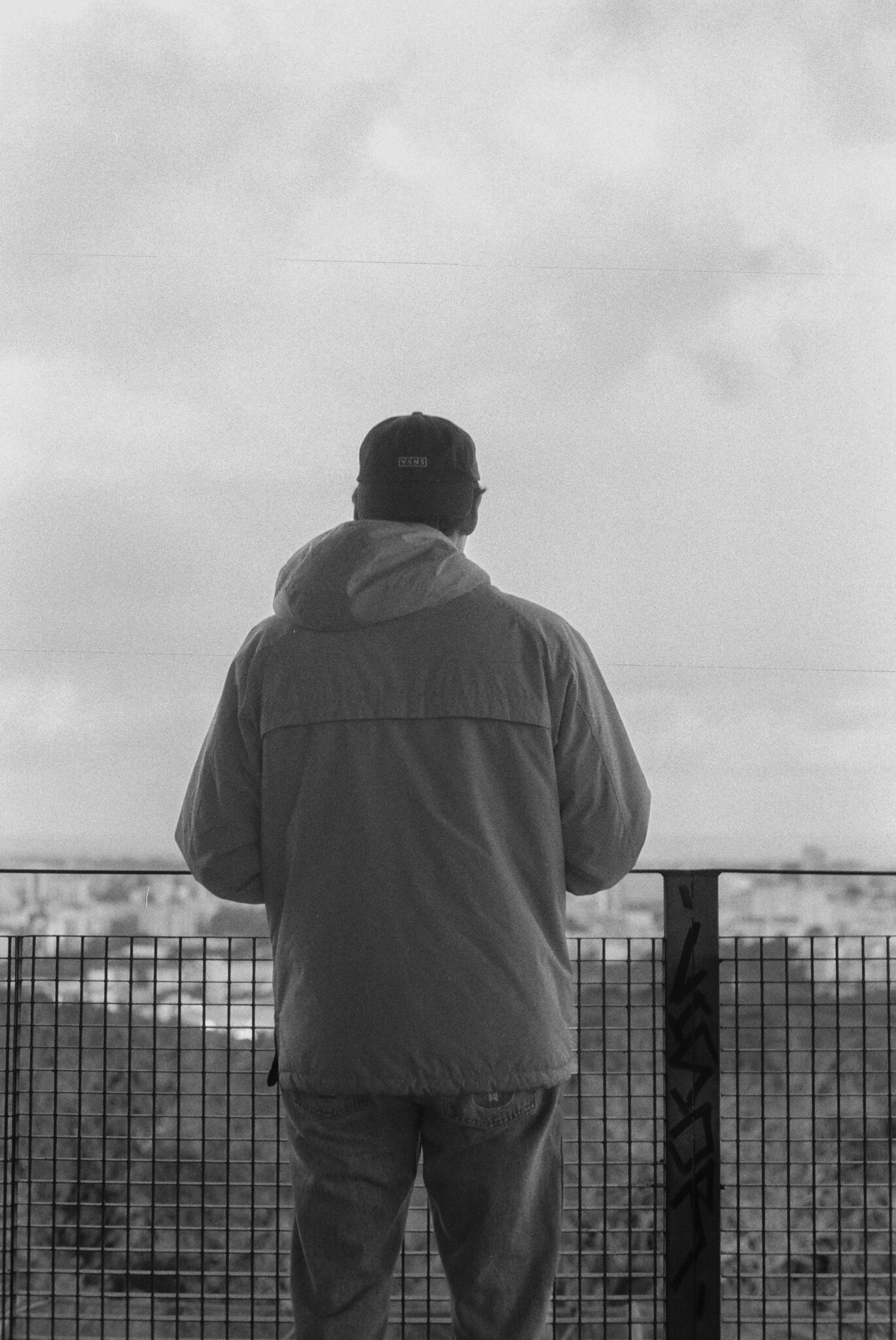
Mike could be described as someone who is eclectic and will most likely fuse Hip-Hop with Jazz and Rock. The amount of work and attention to detail he puts into his work is easily noticeable when you listen to any song he has ever produced. On the 26th of March 2022, we got the chance to talk to Mike during a lovely walk in Monsanto. Usually, we can find him behind his computer playing the guitar, at a mixing table, or a production station. But today, he is the one under the spotlight.
We recommend you have POTTER’s Spotify open by your side while reading the interview so that you can listen to any of the songs mentioned if wanted.
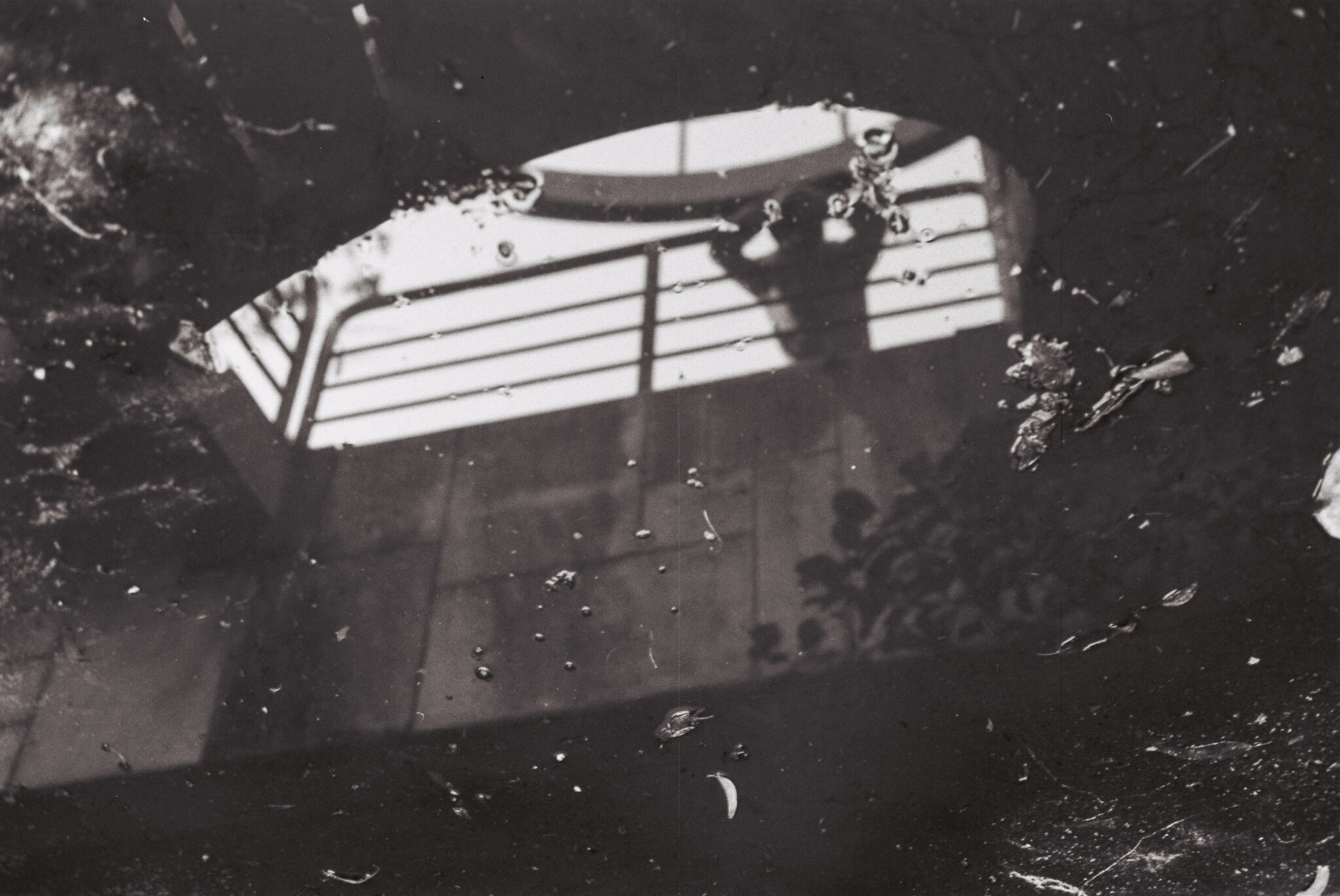
How did music appear in your life?
It all started with the guitar, as an extracurricular activity in primary school. It was something that grabbed me from an early age.
Did you know from an early age that you wanted to produce music or was it something that came later?
My journey began as a guitarist and not as a producer. I composed some melodies, but I never recorded anything for a long time. It was good to train the ear.
Later, when I started producing, finding notes, and making instrumentals was already automatic. The hardest part was learning the technical processes. YouTube was essential for this.
When I was 16, I bought a Scarlett sound card. I started by recording guitars on the PC. One day I did a remix of Lil Uzi Vert’s “XO Tour Llif3” on Logic. At that moment, having understood how to make a remix, I understood how music production worked. There was a click in my head and things just made sense.
From that moment onwards, I have been constantly reading about all technical processes, hardware, software, and new technologies. Music production is a giant world that is always evolving. And I must keep up with it.
What music did you play on the guitar while growing up?
Blues. B.B. King, Buddy Guy, Eric Clapton, John Mayer, Stevie Ray Vaughan, and Jimi Hendrix. Deep down all these guitarists inspire me. I know that if I ever play with a Blues band I’m going to put on a show. I also really enjoyed playing Metallica and Red Hot.
What was it like to study at a Jesuit school like São João de Brito?
I appreciate the luck of having studied in a private school because it was a privilege. I am grateful for the values that were passed on to me not only at home but also at school. On the other hand, there is a lot of formatting in private schools. The people who are there are all from the same social circle and regularly think the same way. This can be bad. Luckily, I’ve always managed to keep an open mind and spirit and I think the music and culture helped.
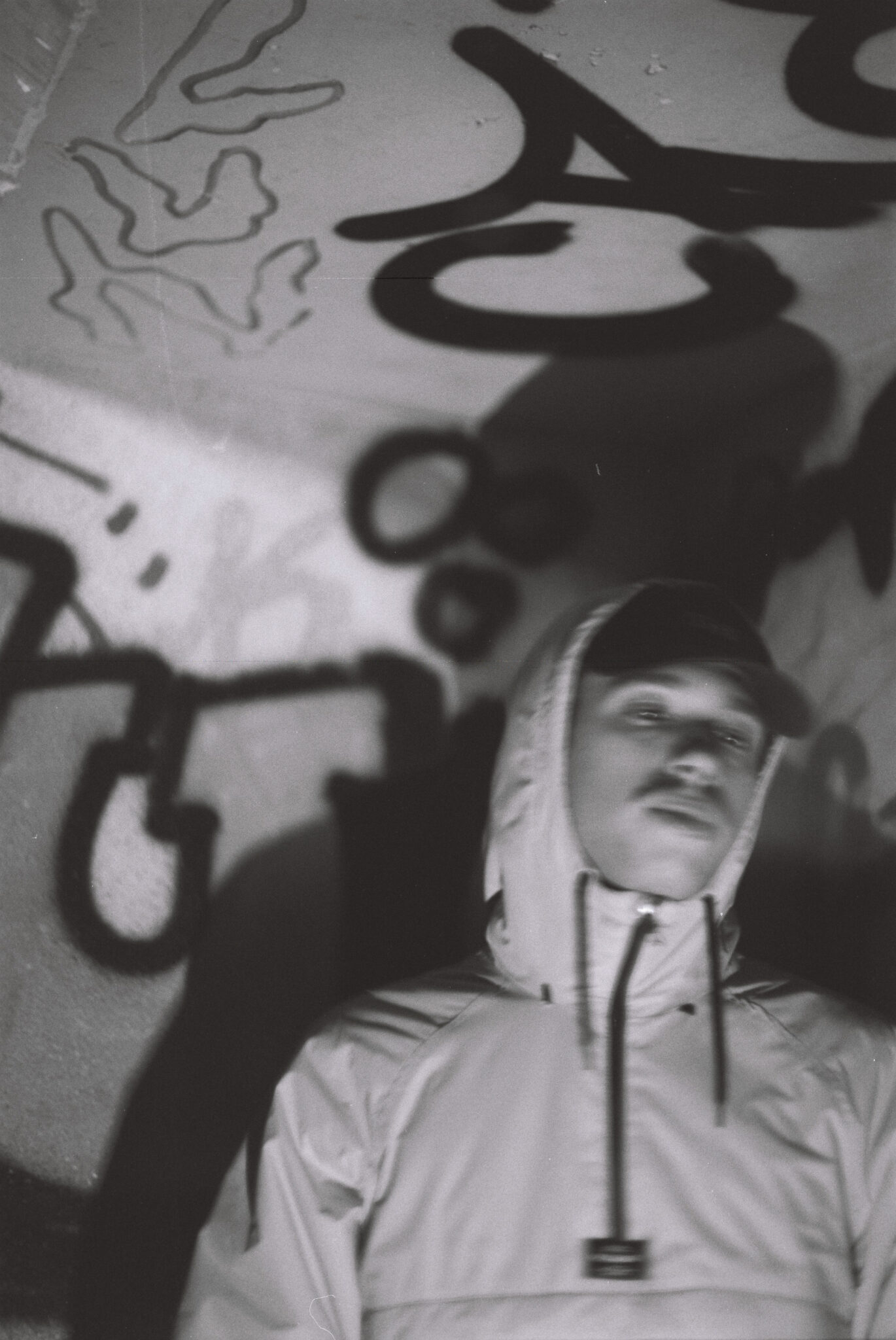

What influence did your parents have on you?
My father is an engineer, but he was once a DJ at a club called Maria Bolachas, in Sintra, so I grew up with my father listening to good music. Rock, Bossa Nova, a bit of everything. My sister was also always an important person to me. She sings and plays guitar and piano. She never produced or recorded, but she is a very cultured person, who has always passed me good music. My mother is an artist, she paints, so she has always been connected to art.
Deep down, I inherited my mother’s creativity, my paternal grandmother’s musical talent, she was a pianist and my father’s technical knowledge.
How was your path after high school?
I studied Design at IADE for a year and a half. I didn’t finish my studies in IADE because I decided I wanted to change to a degree related to the Science and Technology of Sound in Lusófona. It’s a sound design course which is focused on cinema. I didn’t finish it either, but it was an interesting course that gave me a lot of bases for me to develop later.
Has Covid influenced your career as a music producer?
During the quarantine, I went to my house in Sintra. I had a quiet quarantine. I spent a lot of time alone playing video games and I used this opportunity to distract myself from music. I was more focused on finishing subjects for the Sound Design course.
In the summer of 2020, I met Pryde and Goshi in Sintra, who are now good friends of mine. They had a studio next to my house. My last summers have been spent making music and having fun. When I go there, I end up prescinding from producing professionally to producing for pure fun. Although I’ve been there during the winter season to produce more professionally.
When did you realize that you wanted to dedicate yourself 100% to music?
That moment was exactly during the summer of 2021. At that time, I had released the Samsara project, I had already produced the EP Changes by BCKAPPA, and I was almost finishing the second year of the Sound Design degree, but what I wanted was music production.
I tried searching for good music production degrees in Portugal, but I didn’t find anything, so I decided to dedicate myself 100% to music production. Meantime, I met Manuel Carvalho (Carvo) who is a great friend who also produces and motivated me a lot.
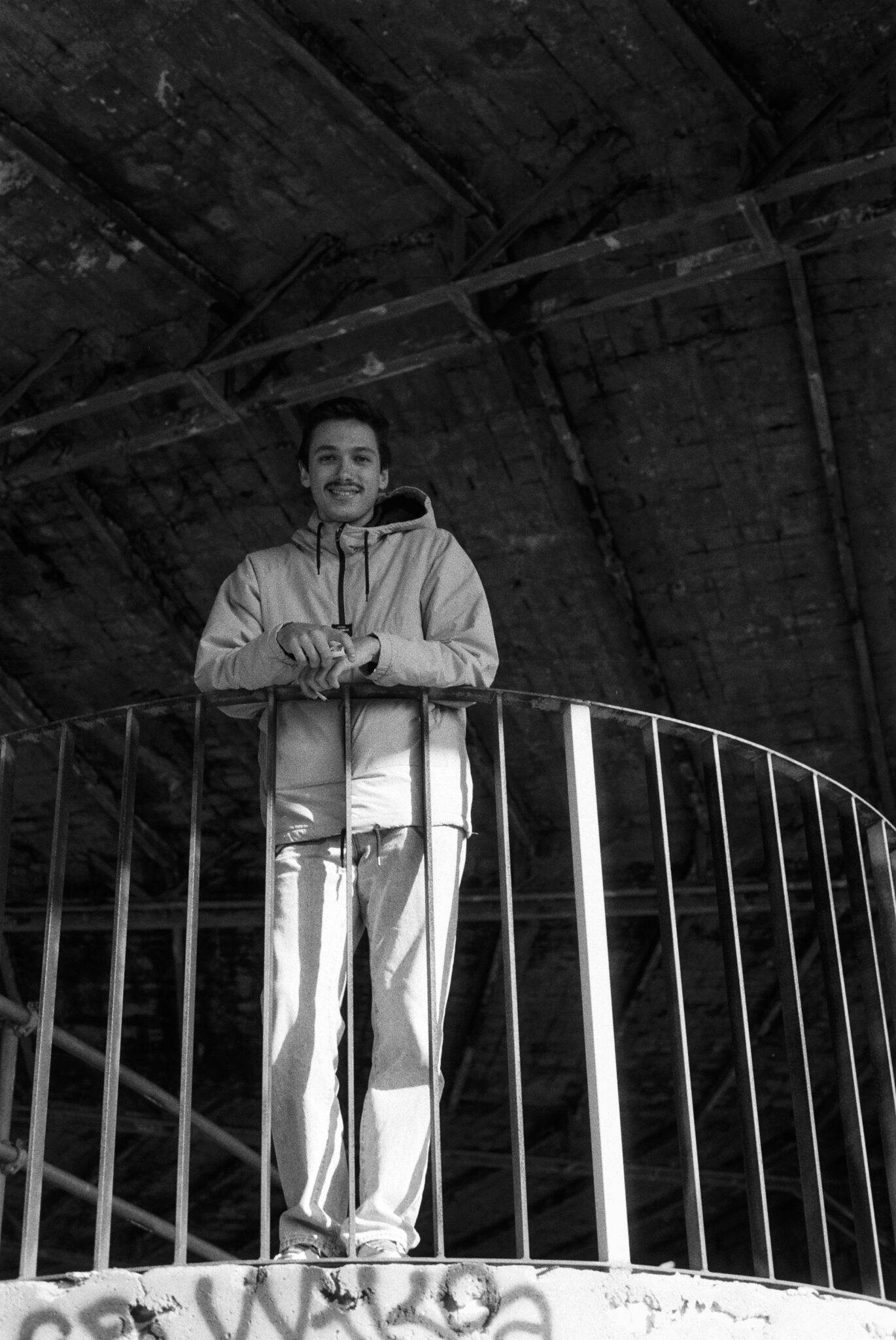
Do you feel that there should be more qualified degrees in music production in Portugal?
I think there should be a way to value people in the music work field to give more credibility and professionalism to the Portuguese music scene. There are few degrees in this area in Portugal. If I want to be a sound engineer in Portugal, there are few or no courses for that. And those that exist have difficult access and few vacancies.
How did your band Samsara come about?
Samsara started in school with my friend Rodrigo Pina. One day I took the guitar and the amplifier with me, and he asked me to play. From then on, we started skipping classes to go home and play.
That originated an album called Screaming Butterfly.
This album is one of my favorite works and I’ll never forget it. It was mostly recorded in my room. It was an adventure. It was a discovery; I learned a lot and it was my first time playing in a band.
How is it to play in a band for you?
It’s like we were making love. We were all one. When that happened, it was beautiful. It’s more difficult to achieve that connection in Hip Hop, but I have that connection with Real. I learned a sentence in my private school which is “Doing the good, well done”. That applies to the music I make. I make Hip Hop, but I make it well. I don’t make it in a hurry. I make it with essence.
What would music be without the producers?
Music is a universal language. I work with French artists. We show them some of Real GUNS’ songs. They do not understand anything, but they feel. They feel it because of the energy the artist puts into his voice. But very important, they feel because of the instrumental. Without the instrumental, they wouldn’t feel it.

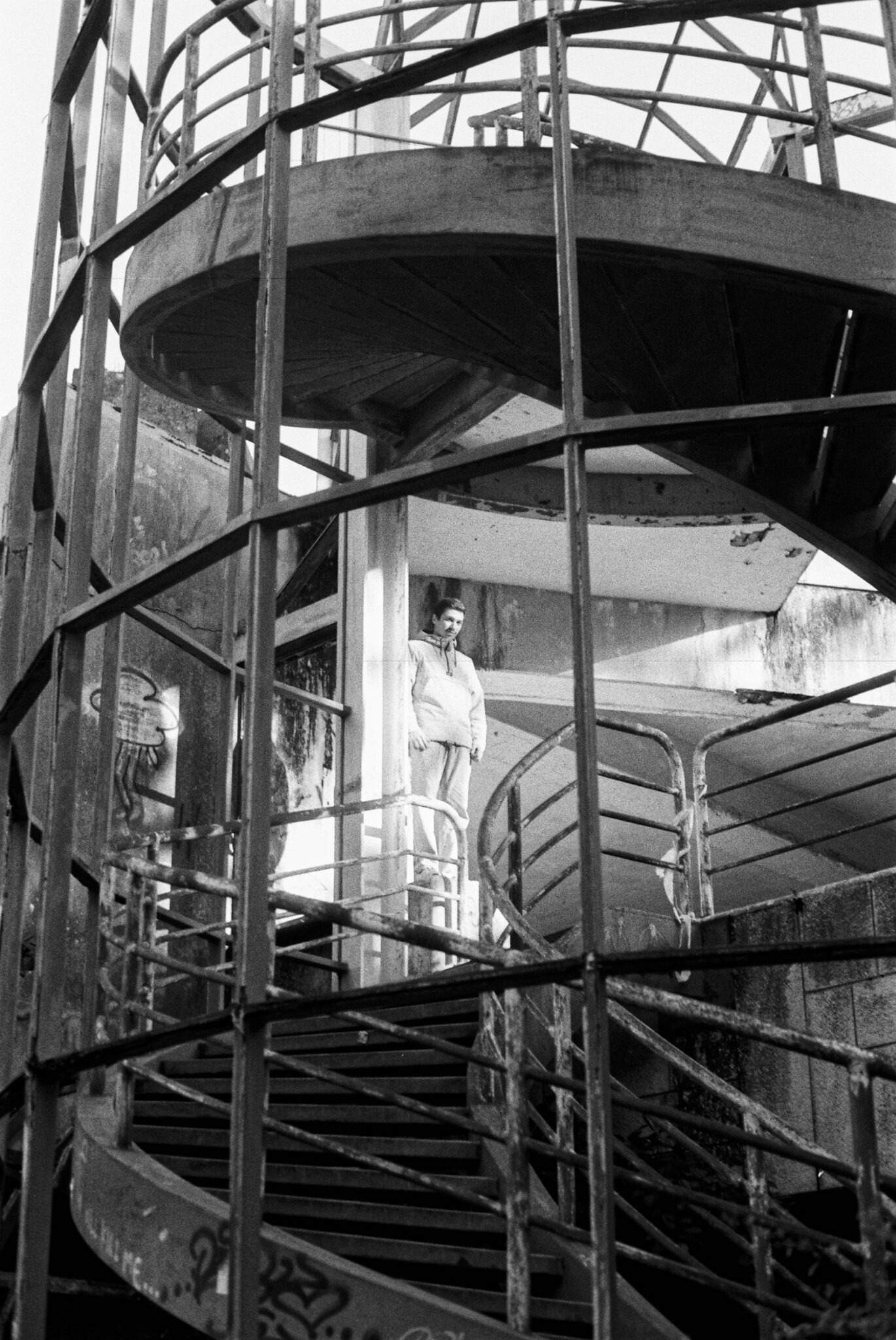
How do you work with your artists?
I produce my artists from scratch. It is an integral project as it was done in the old days. We have a whole team involved in the projects. We even had songs made by 3 or 4 producers in which I only did the mixing. 3 or 4 more videographers and one more photographer. It’s like a football team. Each player has their position.
How do you fund this production?
That’s where the love part comes in. Most of us don’t get paid. We do it for the love and the future payoff. For now, many of us are paddling against the tide. Fortunately, I find myself in a position where I can afford this luxury. But I don’t get tired because I love what I do and because I have defined goals. I’m sure it will be worth it.
Everything is fun when you take it as a hobby. Now, when your life is making music, you must take it more professionally. When I’m in the studio, I’m there to work.
Do you feel it is important to separate your workspace from your resting space?
I almost don’t produce in my house. As I live at my parent’s house, I can’t always do sessions at will. Because the artist must be comfortable and at the same time it’s my parents’ house, they also must be comfortable. Although they make it easier for me to do sessions at home, I don’t like to invade their space.
I like to go into other people’s studios and sit in my corner and watch others work. By observing a competent professional in your area, you will always learn: From discovering new workflows to respecting other ideas and new ways of working.
Do you feel that you production style has a unique mark that identifies you as POTTER?
That classic sound I create with the guitar is what makes me POTTER. It is this combination of drums made on the computer with the organic part of the guitar that creates this specific sound. This organic/digital balance that I call “Black and White” turns out to be interesting. I try to play with it. It has everything to do with the music I listened to, the cultures I experienced, and the places I visited.
What makes you different from a mere beatmaker?
There are beatmakers and there are producers. I’m a producer and therefore a beatmaker. But it’s not enough to be a beatmaker to be a producer. The normal beatmaker is very much governed by the type beat, which limits creativity within Hip-Hop. It’s music made in a hurry, without essence or energy.
Having and knowing how to play more than one instrument is essential for my production style. I play guitar, piano, and bass, and play some drums. I would like to learn to play the saxophone. Adding a saxophone to the guitar would take my instrumentals to another level.

Why do you give so much importance to the relationship between the artist and the producer?
I like the fact that I have a relationship with the artists I work with. I believe that brings quality to the music. An important moment is a moment of sharing the results of hard work.
It all depends on the energy that is deposited. If we’ve had a more complicated week, we’ll make a deeper sound, if I’m happier and Real is sad it will be a happy sound, but Real will come into the song more deeply.
What do you think is the biggest difference between music abroad and here in Portugal?
The audience. There is a much larger audience, there is more consumption, so there is more offer and there are more opportunities for everyone. There is more money, it is easier to work and have budgets for projects.
Lately, you have been working a lot with Real GUNS. What does Real represent?
Before being Real GUNS, Real sang Boom Bap. It was different. Then he went to England and when he came back, he started releasing songs under Real GUNS. The “GUNS” are a collective of people who come together and represent the street lifestyle. “GUNS” stands for “G’s united on the street”. Real is true in what he speaks and says. Hip-Hop culture is directly related to the lifestyle of the streets. Our goal is to represent and highlight the good side of this culture.
We started working together out of nowhere. He just felt my energy and without knowing me he immediately asked me if I wanted to do an EP with him. And I said yes at the time because I felt there was the confidence to give him a guarantee that I was in it 100%. And that was the dedication that I put into Escrevo Com Sangue from the beginning.
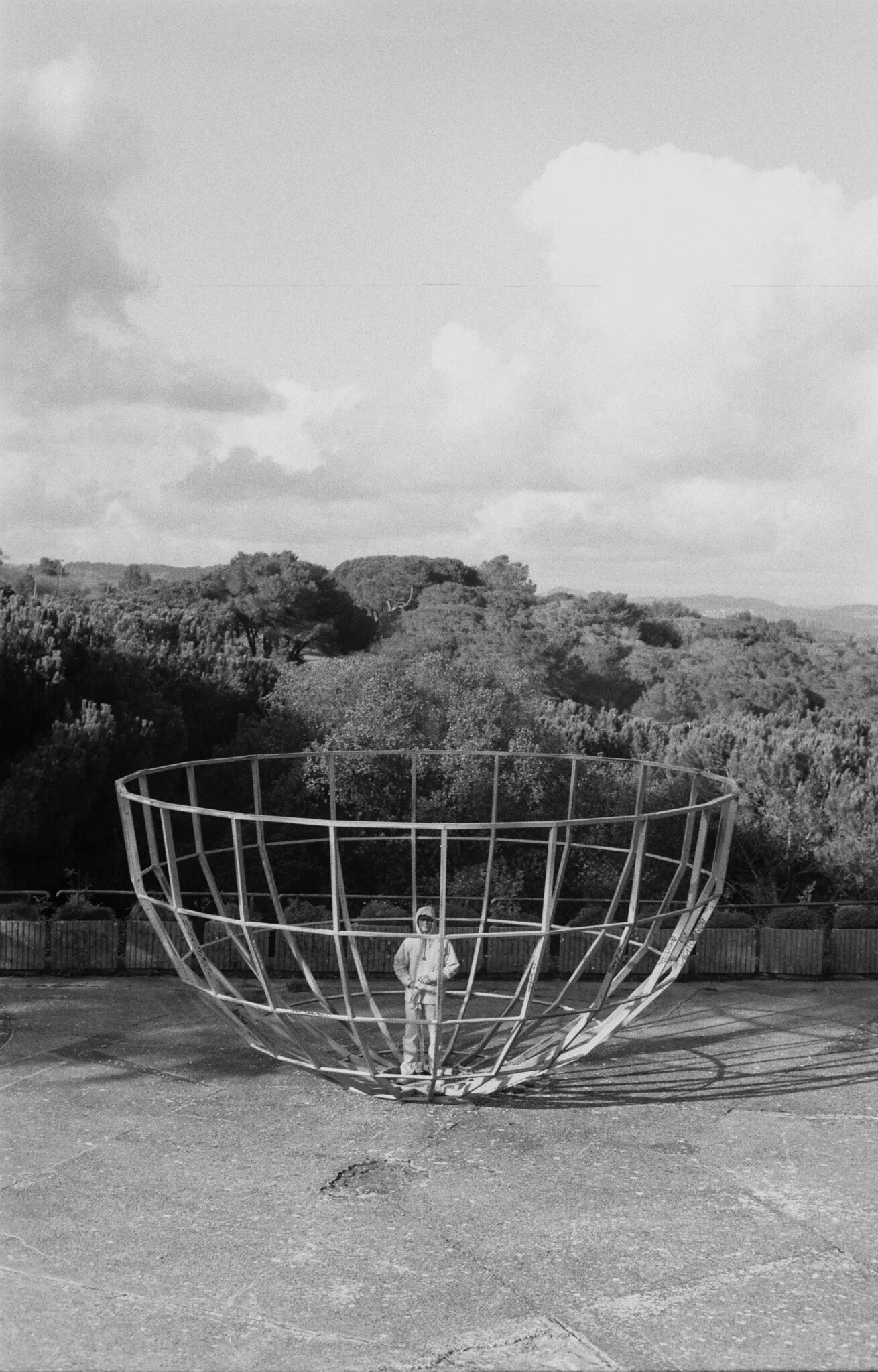
Do you like to tailor each track you make specifically to the artist you’re working with?
I like it, but I can’t always do that. All the songs on Escrevo Com Sangue were created, written, and produced together with Real. Six of the seven songs are made from scratch and all of them use samples from old songs. Deep down, we took a seed that had already been cultivated by someone else, we worked on that seed, accelerated beats, slowed down, and created new sounds.
It has the quality of serious work.
Real is not a producer, but he knows how he wants the instrumental to sound with a given sample. Real already has the idea in his head and transmits it to me through words, through emotion, through the way he is there by my side, and through the energy that he passes me.
I think some people are working like this in Portugal, but there aren’t people who do projects integrally this way.
Many of these projects, like the one with Real GUNS, are joint projects. I receive from him as much as he receives from me. There is a mutual delivery. Perhaps there is no monetary remuneration at the beginning. None of us are getting paid. But if it pays off, we will all receive. We are a team without a title. A collective of people who know each other and want to help each other.
What is the concept behind Escrevo Com Sangue?
The concept of the work is what the name says. I write with blood. The project is the result of all the hours I spent working on this album. For me, this is my “Escrevo Com Sangue”. For Real, this project results from an accumulation of his life experiences. Escrevo Com Sangue has several themes. There is “Ilegal” which talks about the street and illegality. There is “Vivi Mal”, which talks about the suffering and the things Real went through. There’s “Escrevo Com Sangue” which talks about how Real is currently. It’s all connected.
Do you feel that your production line and sonority are innovative?
Maybe the instrumental itself alone exists, maybe the voice alone exists, but the combination of the two doesn’t exist. Real already has his public, but the objective is to expand further. Not dropping drill at 100%. We’re trying to create a new repertoire, which is what Real always wanted, but he didn’t have anyone to help him. The beats we are making are the beats that Real told me he always dreamed of having, but that he didn’t know any producer who made them. As a producer, I am proud to hear that.
And he even cried while doing “Escrevo Com Sangue” in the studio. This is crazy. I made an artist cry with my music. I know it’s a great song because of the emotion of that moment. This song is one of the best on the EP.
Throughout the development of Escrevo Com Sangue, you passed through incredible places and hoods that under other circumstances you might never get to know. Do you feel like you grew up with this project?
I am an open person, I like to meet different people and I was tired of seeing the same faces over and over, so I decided I wanted to meet new people. I have a song with Real that is called “Good and Evil”. I come from a class and an environment where everything looks very nice and shiny. But the reality is so much more than that. There is poverty, there is misery. Evil and good go around together, they mix, and it is important to be aware of the reality that surrounds us. To fully live without illusions, it is important to see the good and the bad.
Only this year since I started producing Escrevo Com Sangue I lived a lot, I went to places I never thought I would feel welcomed the way I did. There is much more humility in the places I went than in the social class I come from.
I value the ability you have to navigate different environments, delve into different themes and meet different people.
It is all about growing up. I’m very lucky. Real is 33 years old and is a person with much more life experience than mine. He is a person I can trust; he taught me and helped me to achieve sounds that I never thought I could do. Age doesn’t matter. What matters is the intention with which you do things. Real has been making music for 15 years and I must have started playing guitar that long ago. And now we just happened to cross paths.
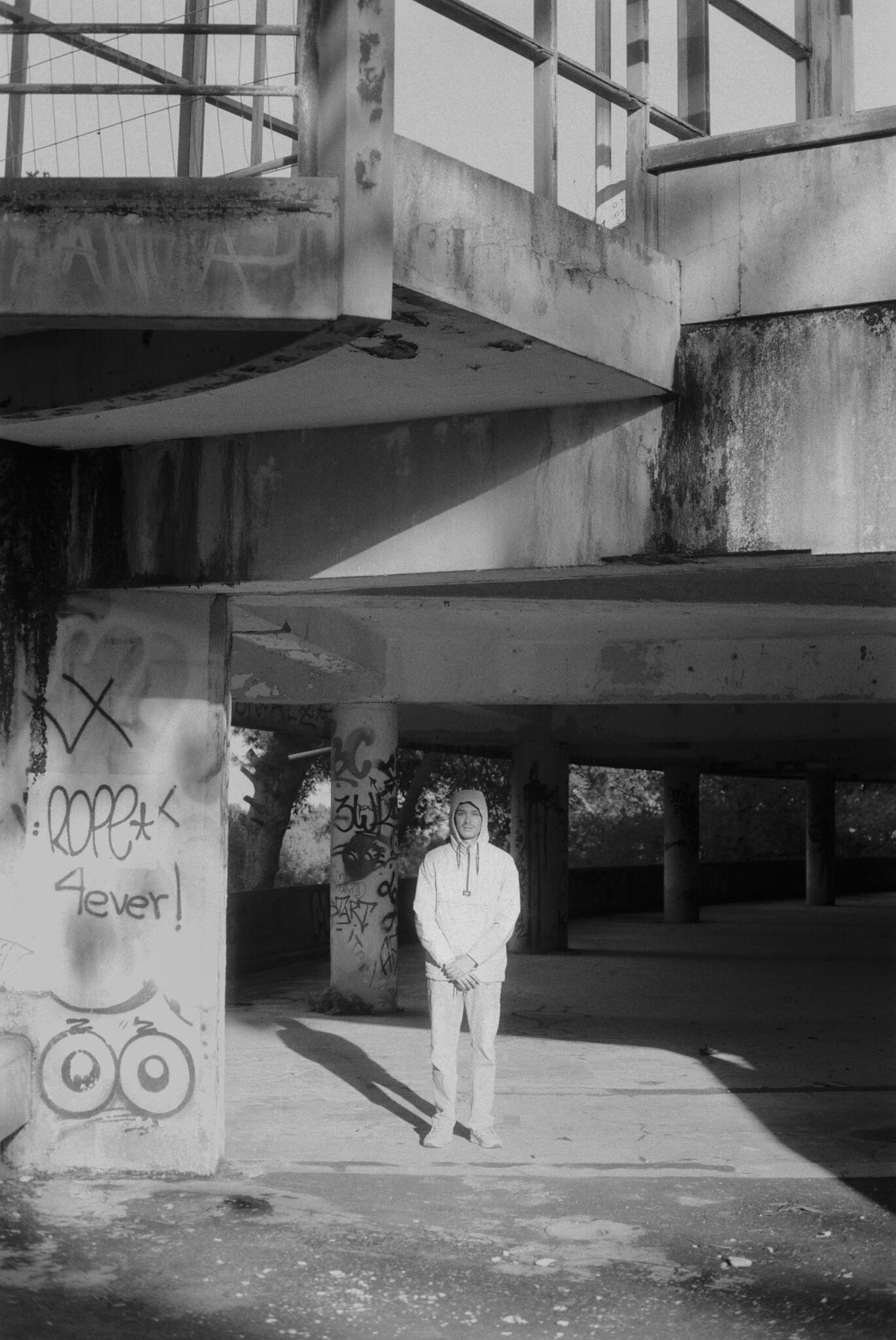
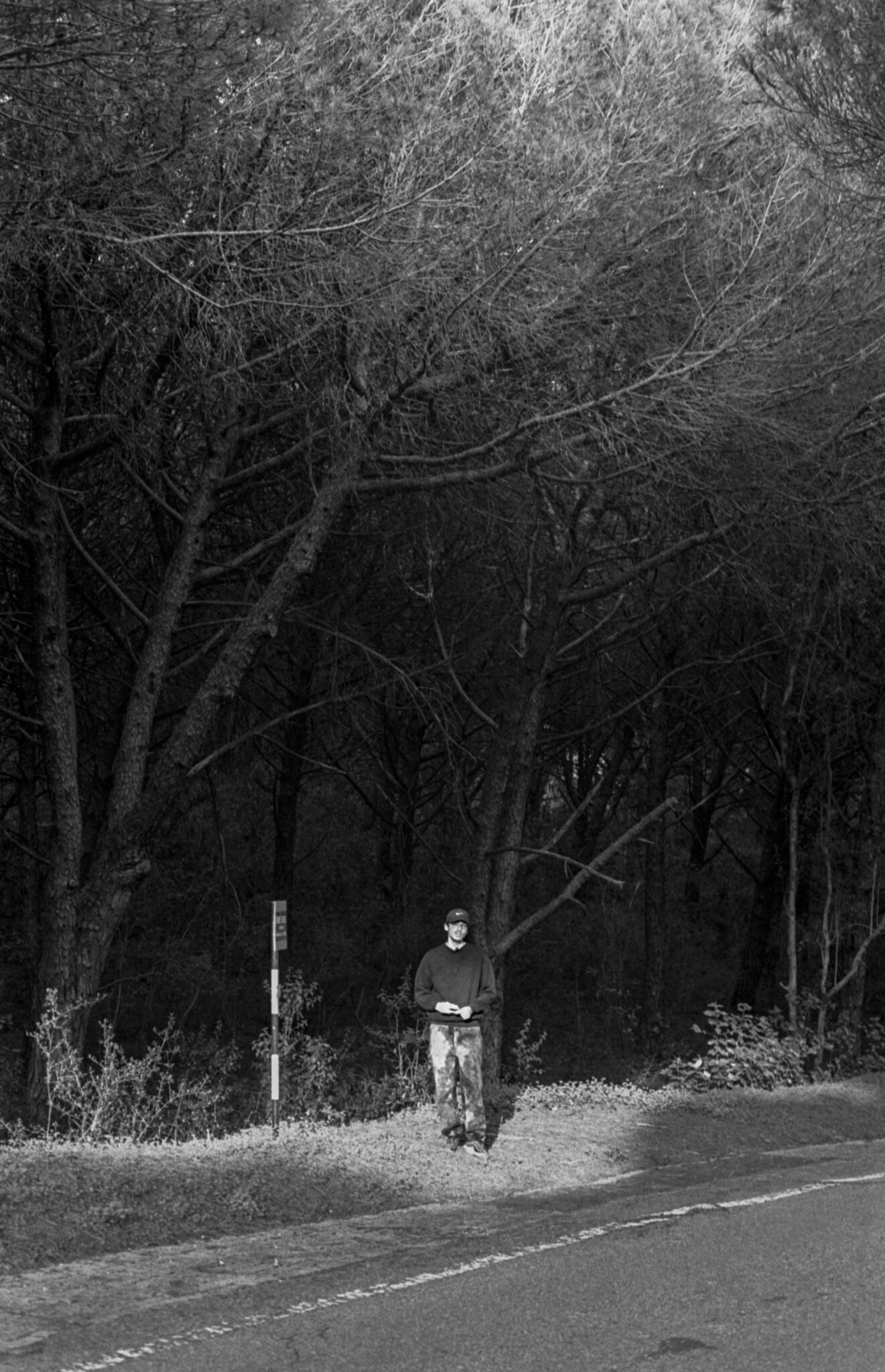
What genre of music do you prefer to produce?
What I enjoy producing the most are bands and instruments. Nowadays I do the drums digitally, but I would like to have a drummer to record with. I’ve been recording saxophone with João Arez. He has an amazing saxophone solo in “Sabotage”.
Nowadays the concept of the producer is more associated with beat-making. Has the true essence of the music producer been lost?
Yes, I feel it has been lost. But it will come back, and there are people out there like me who want to be producers rather than just beatmakers.
My long-term goal is to have a team of musicians and producers that work in my studio. And I would be coordinating the team as a general producer giving my touch on everything that needs to be finalized.
So, you would be the maestro.
Maestro, Producer. Whatever you want to call me. I want to make the arrangements. Something like what happened between me and Rodrigo when we were making Screaming Butterfly. Rodrigo already had ideas for the song “Nation of Insanity”. The sound of the trumpets was already thought out. I saw him telling the trumpeter how he should play the notes, by playing them on his guitar.
If you had to sum up the essence of music in 4 words, which words would you choose?
Energy is in all kinds of music. And creativity too of course. Life. You must live life to make music, no matter where you are in the world. Lastly, I think I’ll choose love.
Not only because I love music, but also for the connection, respect, and love that must exist between people who make music together. In my opinion, a good band plays their songs as if they were making love. They are all one. Pink Floyd didn’t stop playing once during their live concert at Wembley. They were all synchronized with each other like they were only one person. When I play the guitar, the guitar and I are one and one only.
Energy, Creativity, Life, and Love. These 4 words represent the essence of music for me.

On the 1st of July 2022, Real GUNS released the integrally produced by POTTER, Escrevo Com Sangue project. Also, POTTER produced Cíntia’s last released single: “No Stress No Money”
POTTER recently put together his new studio where he currently works.
On the 22nd of September, he performed in Festival Iminente along with Real GUNS on the CHOQUE stage, the most remarkable stage of the festival. He also helped organizing the first edition of Bangers Club Street Summit in Lisbon, which joined national and international drill and trap artists in Lisbon.
Lots of new things are coming from POTTER, but I cannot tell you all of them. I wish I could.
